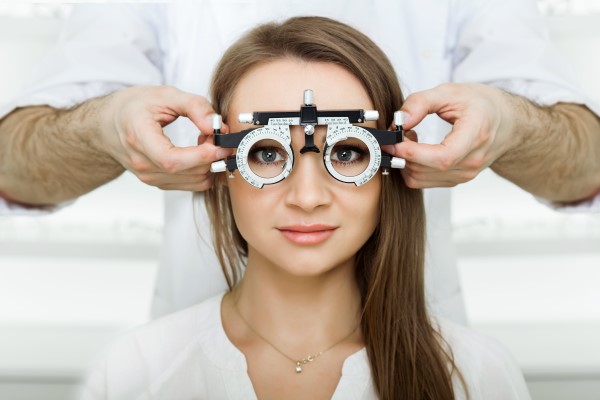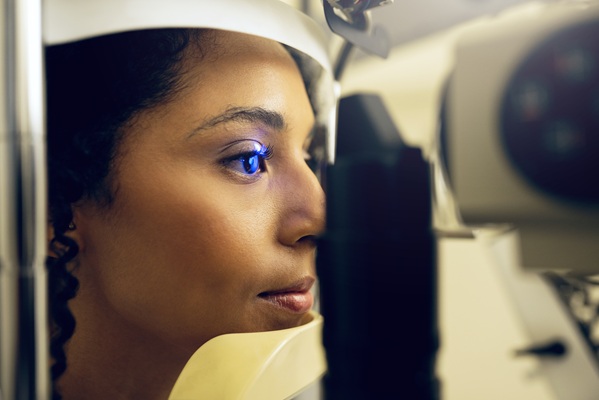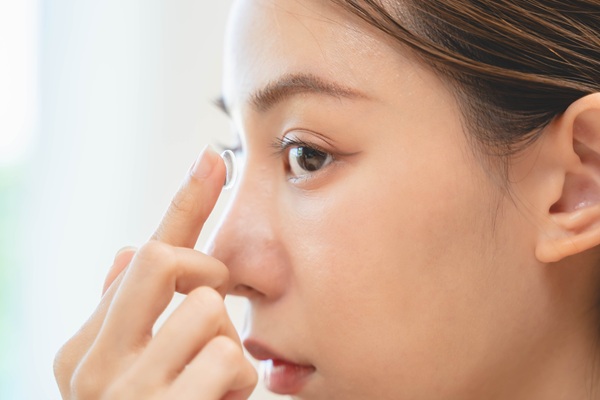Visiting Your Eye Doctor: What To Expect

For those who have never had an eye exam or who have not had a checkup in a long while, a visit to the eye doctor can be an intimidating experience. Some people put off a visit to the optometrist if there are no known issues with their vision, but even those with excellent eyesight should still attend regularly scheduled eye exams for early disease detection and anatomical analysis. Knowing what to expect during the first appointment helps the patient come prepared and sets the nerves at ease.
What to expect at an eye doctor visit
Although the specific tests depend on the reason for the patient's visit, an initial eye exam includes several diagnostic procedures. The practitioner makes a diagnosis by analyzing the results of these examinations and recommending a treatment plan.
Medical and eye history
During their first eye doctor visit, patients need to disclose their medical history and any current issues they are experiencing. The optometrist needs to take medical history into consideration since some conditions such as diabetes can affect vision. Medical history is recorded through written or oral questionnaires that include inquiries about family history of eye disease.
Vision testing
Simple vision tests are given, similar to those performed during a regular physical in a doctor's office. The patient reads from a chart containing random letters to check both close-up vision and vision at a distance. Eye doctors also perform tests for color perception and peripheral vision.
Physical eye exam
The physical eye exam is the most specialized portion of an eye doctor visit. First, the patient is given drops to dilate the pupils so the optometrist can clearly view the interior of the eye and look for abnormalities. Using specialized tools and light sources, the eye doctor can evaluate the health of the exterior and interior eye. Dilating drops cause light sensitivity for several hours, so the patient is directed to wear sunglasses or special eye shields until the effects wear off.
Glaucoma testing
Some patients are tested for signs of glaucoma during a process called tonometry. During tonometry testing, an optometrist places a small, pencil-like device called a tonometer against the numbed eye to measure the pressure. A puff of air may also be used to check eye pressure. If the level is higher than normal, it is a sign of fluid build-up and could be a symptom of glaucoma.
Recommendation for treatment
After all exams are completed, the eye doctor recommends a course of treatment if one is needed. Treatment could include vision correction such as glasses or contacts. If diseases are identified or surgery is required, an optometrist makes a referral to an ophthalmologist for further evaluation.
Conclusion
Eye doctors recommend scheduling an eye exam even if there are no known vision problems. During the first visit, the optometrist gains a full picture of the health of the eyes and develops a treatment plan if there are any vision concerns. Knowing what to expect during a visit to the eye doctor helps patients come in prepared and relaxed.
Request an appointment here: https://www.texasoptical.net or call Texas Optical at (214) 771-7333 for an appointment in our Dallas office.
Check out what others are saying about our services on Yelp: Read our Yelp reviews.
Recent Posts
For those living with diabetes, undergoing a diabetic eye exam is one of the most important steps in protecting their vision and overall eye health. High blood sugar levels can lead to a range of complications, including conditions that damage the eyes over time. These exams help detect these issues before they become serious, allowing…
Contact lenses provide clear vision and convenience for individuals who prefer an alternative to eyeglasses. However, proper care and maintenance are essential to prevent infections, irritation, and eye damage. Neglecting hygiene practices can lead to serious eye conditions, including corneal ulcers and keratitis. Understanding how to clean, store, and handle contact lenses ensures long-term eye…
Maintaining eye health and preventing long-term issues is the result of consistent and quality vision care. Many people focus on overall wellness but may overlook daily habits that support healthy eyesight. However, taking simple steps each day can protect vision, reduce eye strain, and prevent future complications. By making eye health a priority, it is…
Prescription contacts provide vision correction, comfort, and convenience for those who do not want to wear glasses. However, caring for and wearing contacts takes some getting used to. Learning to insert, remove, and maintain them will help ensure a comfortable and safe experience.Not all contact lenses are the same, and choosing the right pair is…


